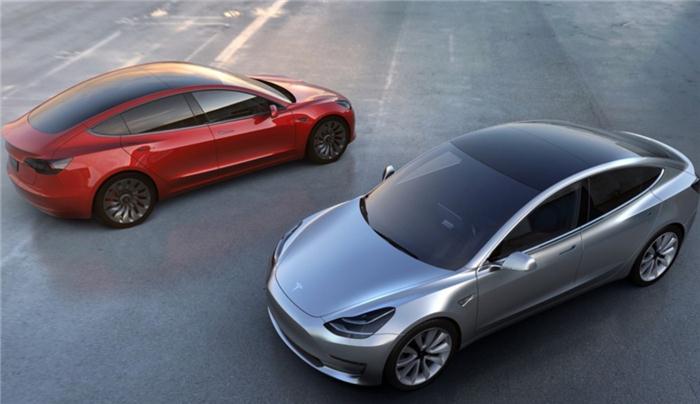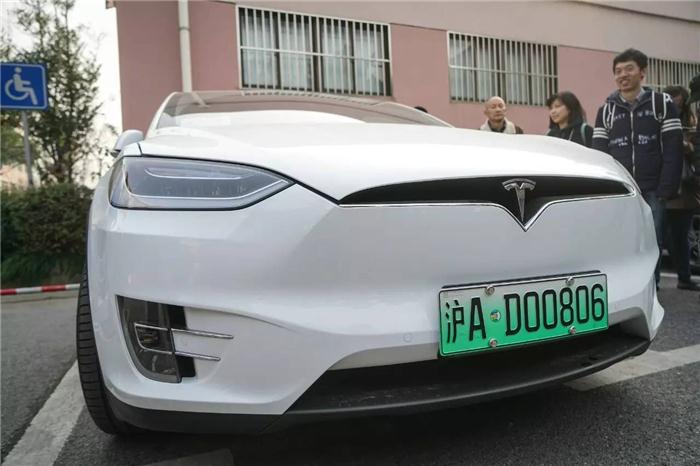
The European Union plans to establish an alliance in the field of battery power; Daimler plans to electrify all its passenger vehicle product lines by 2022; Audi and Porsche will jointly develop high-end electric vehicle platforms; and Marciano, head of Fiat Chrysler Then think that the widespread use of electric vehicles may be catastrophic?
The keywords of electric vehicles, discontinuation of fuel vehicles, and “double scores†affect the “nerves†of the domestic auto industry and companies. Similarly, in the face of the wave of motorized vehicles, foreign car companies and organizations are actively taking measures.
EU intends to establish battery power alliance
On Wednesday, European Commission Vice President Maros Sefcovic proposed at a conference in Brussels that the EU plans to establish a coalition in the field of battery power and will develop the battery manufacturing industry within the EU next week, and with Asia and the United States. The manufacturers started to compete and other issues, sponsoring executive discussions in the automotive, chemical and engineering sectors.
Volkswagen, automotive supplier Continental Group, and material technology group Umicore and other companies have said they will participate in the negotiations.
Bernstein Research analysts wrote in a report that if sales of electric vehicles rise as many car manufacturers expect, European battery capacity could reach as much as $30 billion. "When the demand for electric vehicles grows, how can the industry find enough batteries or raw materials? This is a key missing part," they write.
“Our goal is to be truly 'made in the EU',†Sefcovic said in an e-mail to Reuters. “If we seriously consider transitioning to electrification, supporting the battery industry is imperative. We must form a complete value chain. , including battery recycling."
"This is a good start," said a spokesman for Volkswagen. Just last month, Volkswagen's brand owners were calling for the automotive industry to establish a regional battery supplier.
Daimler builds a gigawatt battery factory
In a slightly different attitude from Volkswagen, Daimler seems more inclined to "self-sufficiency."
By 2022, the company plans to electrify all of its passenger vehicle product lines, including more than 50 pure-electric models, hydrogen hybrids and 48-volt plug-in hybrids. Among them, the first Mercedes-Benz EQ model will be produced in Bremen, Germany in 2019.
As part of this strategy, Mercedes will invest $1 billion to establish an EQ electric vehicle production line in Vance, Alabama, and a battery pack plant operating at a double digit gigawatt (hour) capacity, and The production will start in the next 10 years.
In addition, Markus Schaefer, owner of Mercedes-Benz Motors, revealed that Mercedes plans to introduce a 1400-pound battery that can be used to power large electric SUVs.
Prior to the announcement in Alabama, Daimler said that it will produce Mercedes-Benz EQ electric vehicles in Bremen, Sindelfingen and Rust, Germany, as well as joint venture partners in Beijing and China. Beiqi Holding Cooperation.
Audi and Porsche cooperate to develop high-end electric vehicle platform
As a subsidiary brand of the Volkswagen Group, Audi performed more aggressively than its parent company.
At last month's Frankfurt Motor Show, Peter Mertens, an executive from Volvo who came to Audi, said in an interview with Auto News Europe: “We have a more ambitious goal than the Volkswagen Group. By 2025, we will have three points. One of the sales will come from plug-in hybrids and electric cars."
Mertens also revealed that in the PPE (Premium Platform Electric) architecture jointly developed by Audi and Porsche, Audi leads two of the three vehicle families and has divided the technical responsibilities of the team to the level of each module and system, and It is highly likely that the focus of electrification will be on Audi A4 and Audi A6 models. He also said that joint development is something that has never really happened between two companies of this size, and he is looking forward to what the team can really achieve.
FCA: Electric Vehicles Threaten Earth
However, no matter what happens, there will be no lack of opponents. The CEO of Fiat Chrysler Automotive (FCA) Malchonet believes that the widespread use of electric vehicles may be disastrous because it may increase CO2 emissions and exacerbate global warming.
On Monday, the long-time skeptic of electric vehicles stated that "the forced introduction of bev battery electric vehicles globally, without addressing the issue of how to obtain clean energy will endanger the survival of our planet."
Malchone said that now two-thirds of the world's electricity production uses fossil fuels such as coal and oil, which means that the actual carbon dioxide emissions of battery-powered vehicles are even in the “best case†Gasoline engine in a car.
Battery-powered cars are also detrimental to Malcolm’s “bottom line,†and he said that each FCA sold a pure electric Fiat 500 in California would lose $20,000. He had previously estimated that the loss per vehicle was $14,000.
GM focuses on investing in electric car market to usher in rising stock prices
Under the leadership of CEO Mary Barra, GM has reduced its international operations in the past five years, stopped production in Australia and Indonesia, and withdrew from the European market. It has also substantially restructured its operations in Thailand. On Tuesday, General Motors once again shrank its strength. The company said it will merge operations outside of China and North America into a new agency based in Detroit to further reduce its business in the loss-making market and increase investment in electric vehicles. .
General Motors announced on Monday that it plans to launch at least 20 new all-electric and hydrogen fuel cell vehicles globally by 2023, including two new cars in the next 18 months.
Stefan Jacoby, executive vice president of international operations at General Motors, told Reuters: “Our strategy is to re-adjust our traditional business operations in order to free up resources and financial strength to truly enter the next chapter of the automotive industry.â€
Bara's strategy is beginning to win investors' pursuit. On Monday, General Motors shares closed at $42.15, the highest level since the company's 2010 initial public offering after bankruptcy. General Motors shares continued to rise on Tuesday, closing the day up 3% to $43.45.
Ford to undertake major reforms to establish "Edison team" to develop electric vehicles
Ford's situation is much better than that of General Motors. Ford Motor Company Chief Executive Jim Hackett outlined comprehensive reforms on Tuesday, including shifting one-third of the company’s internal-combustion engine expenditures to motorized vehicles and cutting costs by $14 billion. He said that the company will develop new models faster, transfer $7 billion of product development funds from cars to more profitable light trucks, and connect the Internet to Ford’s US lineup within two years.

Ford Motors is also forming an internal team called the "Edison Team" to research and develop all-electric vehicles. This will be separated from Ford's other electrification initiatives, including hybrid and plug-in hybrids.
“We have seen a turning point in the development of battery electric vehicles in major markets,†said Sherif Marakby, head of Ford’s electric car and self-driving car, to Car News. "We believe that cross-functional teams are important from the definition of strategic planning and implementation to advanced marketing."
Marakby also said that Ford will deliver 13 electric vehicles in the next five years, of which seven have been announced, including a 300-mile crossover. He said Ford will increase the number of battery electric vehicles it provides, but did not provide details or timetables.
“We are open to our partners, but this team will be responsible for defining the strategy,†Marakby said, and the team’s goal is “to act quickly, think bigger, and really boost BEV products from Ford.â€
Honda plans to integrate factories to refocus electric vehicles
Honda is taking rare steps to close down a Japanese assembly plant to reorganize the production scale of its domestic factories and shift its manufacturing expertise to electric vehicles.
In Japan, closing an assembly plant is a rare thing. Honda is closing its aging Sayama assembly plant and integrating it with the nearby Yorii plant. Honda said on Wednesday that the work in Sayama will end on March 31, 2022 and workers will be transferred to Yorii and other factories.
This move solved Honda's two problems: overcapacity in Japanese factories, and the need for more electric vehicles to be launched under stricter emission standards. Honda will significantly increase the operating rate of its factories in Japan by closing Sayama. In addition, the company will further achieve its target of two-thirds sales revenue by 2030.
“Honda will develop its manufacturing operations and product development to a large extent,†Chief Executive Takahiro Hachigo outlined the plans at a press conference. "The automotive industry is experiencing an unprecedented turning point in history. This is why Honda is taking on new technologies such as electrification and smart technologies."
Vitamin B3 Niacin,Vitamin B3 Niacin For Agriculture,Pharmaceutical Vitamin B3 Niacin,Vitamin B3-Feed 99% Bp
SICHUAN YINHE CHEMICAL CO.,LTD , https://www.sichuanyhcc.com
